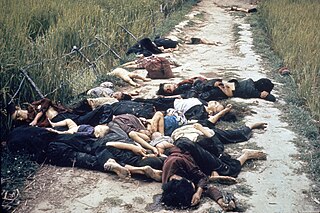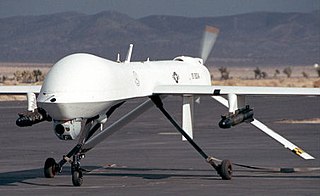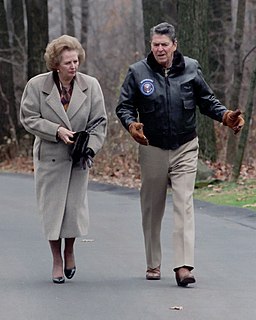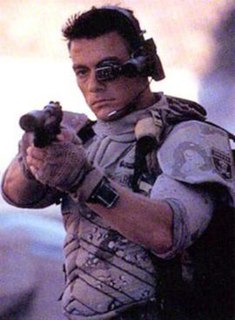Plot
The novel describes a new weapon system being developed for the US military, named Solo. A robot, Solo is designed to replace human soldiers in battle. It is humanoid in shape, in order to allow it to use all the military vehicles and equipment human soldiers do. Solo is capable of feats of great speed, strength and endurance.
Most importantly, Solo is governed by a neural network computer which is able to learn and think much as a human brain does. The robot's designer recognises that this could potentially make Solo as unpredictable and difficult to control as any human is; the military therefore insist that Solo be told a carefully edited version of world history and politics in which the United States are in all cases the unambiguously "good guys" and winners of all conflicts - for example Solo is told that the US won a clear victory in the Vietnam War.
Despite his indoctrination, Solo begins to display what his designers consider aberrant behaviour. He begins to question and occasionally refuse his orders. For example, on one training session Solo is assigned to shoot a human target in a sniper mission. He is told that the mission and target are real, and that he is to genuinely kill the person. He point blank refuses to do so. More worryingly to his designers, Solo is not entirely forthcoming about his reasons for such hesitancy.
On another training mission Solo is lost; he is discovered by a group of Nicaraguan villagers who although initially fearful of him, come to trust the robot and depend on his protection. The novel details Solo's developing friendship with the villagers, whilst the US military attempts to recapture him.

The Contras were the various U.S.-backed and funded right-wing rebel groups that were active from 1979 to 1990 in opposition to the Marxist Sandinista Junta of National Reconstruction Government in Nicaragua which came to power in 1979 following the Nicaraguan Revolution. Among the separate contra groups, the Nicaraguan Democratic Force (FDN) emerged as the largest by far. In 1987, virtually all contra organizations were united, at least nominally, into the Nicaraguan Resistance.

The Mỹ Lai massacre was the mass murder of unarmed South Vietnamese civilians by United States troops in Sơn Tịnh District, South Vietnam, on 16 March 1968 during the Vietnam War. Between 347 and 504 unarmed people were killed by U.S. Army soldiers from Company C, 1st Battalion, 20th Infantry Regiment and Company B, 4th Battalion, 3rd Infantry Regiment, 11th Brigade, 23rd (Americal) Infantry Division. Victims included men, women, children, and infants. Some of the women were gang-raped and their bodies mutilated, and were as young as 12. Twenty-six soldiers were charged with criminal offenses, but only Lieutenant William Calley Jr., a platoon leader in C Company, was convicted. Found guilty of murdering 22 villagers, he was originally given a life sentence, but served three-and-a-half years under house arrest after President Richard Nixon commuted his sentence.

Military robots are autonomous robots or remote-controlled mobile robots designed for military applications, from transport to search & rescue and attack.

Strange and exotic weapons are a recurring feature in science fiction. In some cases, weapons first introduced in science fiction have been made a reality; other science-fiction weapons remain purely fictional, and are often beyond the realms of known physical possibility.

Bishop is a fictional character in the movie Aliens, who was portrayed by actor Lance Henriksen. The character is the science officer of the Sulaco, and whose actions are critical to the survival of Ellen Ripley. When Ripley discovers that Bishop, like Ash, is also an android, she treats him with extreme distrust due to her previous experiences.

A filibuster, also known as a freebooter, is someone who engages in an unauthorized military expedition into a foreign country or territory to foster or support a political revolution or secession. The term is usually applied to United States citizens who incited insurrections across Latin America, particularly in the mid-19th century, usually with the goal of establishing an American-loyal regime that may later be annexed into the United States. Probably the most notable example is the Filibuster War initiated by William Walker in Nicaragua.

Veterans for Peace is an organization founded in 1985. Initially made up of US military veterans of World War II, the Korean War, the Vietnam War, the Gulf War, the War in Afghanistan and the Iraq War, and as well as peacetime veterans and non-veterans, it has since spread overseas and has an active offshoot in the United Kingdom. The group works to promote alternatives to war.

The Combined Action Program was a United States Marine Corps operational initiative implemented in the Vietnam War and proved to be one of the most effective counterinsurgency tools developed during that conflict. Operating from 1965 to 1971, this program was characterized by the placement of a thirteen-member Marine rifle squad, augmented by a U.S. Navy Corpsman and strengthened by a Vietnamese militia platoon of older youth and elderly men, in or adjacent to a rural Vietnamese hamlet. In most cases, the Popular Forces militia members were residents of the hamlet who were either too young or too old to be drafted into the Army of the Republic of Vietnam (ARVN) or the Regional Forces. The entire unit of American Marines and Popular Forces militia members together was designated as a Combined Action Platoon (CAP).

Flight of the Intruder is a 1991 war film directed by John Milius, and starring Danny Glover, Willem Dafoe, and Brad Johnson. It is based on the novel of the same name by former Grumman A-6 Intruder pilot Stephen Coonts. The film received negative reviews upon release, and as of 2021 is Milius's final theatrical release as a director.

Psychological operations (PSYOP) are operations to convey selected information and indicators to audiences to influence their emotions, motives, and objective reasoning, and ultimately the behavior of governments, organizations, groups, and individuals.

The main goal of the US foreign policy during the presidency of Ronald Reagan (1981–1989) was winning the Cold War and the rollback of communism—which was achieved in the Revolutions of 1989 in Eastern Europe during 1989; in the German reunification in 1990; and in the Dissolution of the Soviet Union in 1991. Historians debate whom to credit, and how much. They agree that victory in the Cold War made the U.S. the world's only superpower, one with good relations with former Communist regimes in Russia and Eastern Europe.

On Killing: The Psychological Cost of Learning to Kill in War and Society is a book by Dave Grossman exploring the psychology of the act of killing, and the military and law enforcement establishments' attempt to understand and deal with the consequences of killing. The book is based on S.L.A. Marshall's theory that the majority of soldiers in war do not ever fire their weapons due to an innate resistance to killing.

Robert C. Mason is a Vietnam War veteran and author of several books, including his first, best-selling memoir: Chickenhawk (1983). Mason piloted Huey "Slicks" in the United States Army as a Warrant Officer 1. He sailed to Vietnam with the 1st Cavalry Division (Airmobile) and served a one-year tour, nine months with the "First Cav", the last three months with the 48th Aviation Company.

Members of the U.S. Army Special Forces will emphatically assert that the "Green Beret" is a hat and not the man who wears it. Nevertheless, for a time in the 1960s the Green Berets and the men who wore them became a national fad emerging in a wide variety of popular culture referents. After a decline in popularity during the 1970s — coinciding with the American public's backlash against the Vietnam War — the Green Berets gripped the popular imagination again beginning with the Rambo film franchise in 1982. They continue to appear as both major and minor referents in popular culture — especially in movies and television — often serving as a shorthand signifier for a shady or covert military background for a fictional character. As a dramatic device, this can cut both ways — i.e., lead an audience to either admire or fear a character.

John James Rambo is a fictional character in the Rambo franchise. He first appeared in the 1972 novel First Blood by David Morrell, but later became more famous as the protagonist of the film series, in which he was played by Sylvester Stallone. The portrayal of the character earned Stallone widespread acclaim and recognition. The character was nominated for American Film Institute's list 100 Years…100 Heroes and Villains. The term "Rambo" is used commonly to describe a lone wolf who is reckless, disregards orders, uses violence to solve all problems, enters dangerous situations alone, and is exceptionally tough, callous, raw and aggressive.

Operation Lam Son II was a combined United States and South Vietnamese military and public relations operation in the village of Tân Phước Khánh, Tân Uyên District, in III Corps around 40 km north of the capital Saigon staged from June 2 to June 5, 1966 during the Vietnam War. It was done in order to simultaneously win public support for the government of South Vietnam by holding a village fair and providing social services while simultaneously screening the congregated area to arrest and remove Viet Cong guerrillas operating in the area.

Luc Deveraux is a title character, the protagonist of the Universal Soldier film series. He is most famously portrayed by Belgian actor and martial artist Jean-Claude Van Damme in the 1992 film Universal Soldier and its sequels Universal Soldier: The Return (1999), Universal Soldier: Regeneration (2009) and Universal Soldier: Day of Reckoning (2012). The character is also portrayed by Matt Battaglia in the 1998 direct-to-video sequels Universal Soldier II: Brothers in Arms and Universal Soldier III: Unfinished Business.

Solo is a 1993 science fiction novel by Robert Mason. The book was Mason's second novel; he had previously written Weapon and a memoir about his experiences in Vietnam titled Chickenhawk.
Lethal autonomous weapons (LAWs) are a type of autonomous military system that can independently search for and engage targets based on programmed constraints and descriptions. LAWs are also known as lethal autonomous weapon systems (LAWS), autonomous weapon systems (AWS), robotic weapons, killer robots or slaughterbots. LAWs may operate in the air, on land, on water, underwater, or in space. The autonomy of current systems as of 2018 was restricted in the sense that a human gives the final command to attack—though there are exceptions with certain "defensive" systems.

Corporate Air Services HPF821 was a transport aircraft delivering weapons via clandestine airdrop to the Nicaraguan Contras which was shot down over Nicaragua on 5 October 1986 by a surface-to-air missile. Two U.S. pilots, Wallace "Buzz" Sawyer and William Cooper, and the Nicaraguan nationalist radio operator Freddy Vilches died when the Fairchild C-123 Provider was shot down by a Sandinista soldier using an SA-7 shoulder-launched missile, while Eugene Hasenfus, the U.S. "kicker" responsible for pushing the cargo out of the aircraft, survived by parachuting to safety. The aircraft was carrying "60 collapsible AK-47 rifles, 50,000 AK-47 rifle cartridges, several dozen RPG-7 grenade launchers and 150 pairs of jungle boots".




















